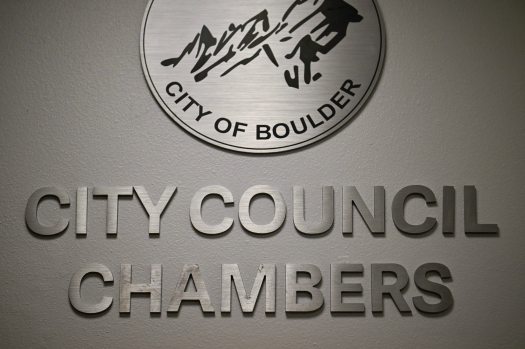Top Stories
Boulder Council Passes Urgent Two-Year Gray Water Ban

UPDATE: The Boulder City Council has just announced a two-year ban on the use of gray water, a crucial development for residents hoping to utilize recycled water for irrigation. This ordinance, passed last week, aligns the city with a 2024 state law set to take effect next year, which permits gray water systems in new constructions unless municipalities opt out.
Gray water, sourced from household appliances like sinks and showers, has been recognized for its potential to conserve fresh water. However, city staffers are emphasizing compliance with state regulations as the reason for the immediate ban. They noted that implementing a city-wide gray water system will not only require the development of new regulations but also significant resources including two full-time equivalent positions over the next two years.
The city plans to establish a comprehensive permitting process, conduct inspections, and maintain a database of approved systems to ensure safe usage and prevent contamination of drinking water. For instance, a typical laundry-to-landscape system diverts water from washers to irrigation setups, making it a viable option for conservation.
Despite the potential benefits, some community members, including Planning Board Chair Mark McIntyre, have criticized the ordinance for being overly broad and restrictive. In a recent memo, McIntyre urged the council to redefine the current draft with more clarity and to engage a wider range of stakeholders in discussions regarding gray water usage.
The urgency of this situation is underscored by the city’s ongoing water efficiency challenges. A project conducted by CU Boulder from 2013 to 2023 found that gray water conservation measures yielded less water savings than anticipated. This highlights the critical need for effective management and policy frameworks.
Residents and conservationists are increasingly concerned about the implications of this ban, as it could limit sustainable practices that reduce reliance on fresh water. The council’s decision has prompted discussions about the future of water use in Boulder, emphasizing the need for a balanced approach that considers both regulation and conservation.
As the city prepares for the upcoming changes, stakeholders are encouraged to stay informed about public engagements and opportunities for input on future gray water initiatives. The next steps include finalizing the ordinance details and determining the timeline for implementing the necessary systems.
WHAT’S NEXT: Watch for updates on public forums and discussions regarding gray water systems as Boulder navigates this significant change in water management policy.
-

 Science4 weeks ago
Science4 weeks agoInterstellar Object 3I/ATLAS Emits Unique Metal Alloy, Says Scientist
-

 Science4 weeks ago
Science4 weeks agoResearchers Achieve Fastest Genome Sequencing in Under Four Hours
-

 Politics4 weeks ago
Politics4 weeks agoAfghan Refugee Detained by ICE After Asylum Hearing in New York
-

 Business4 weeks ago
Business4 weeks agoIconic Sand Dollar Social Club Listed for $3 Million in Folly Beach
-

 Health4 weeks ago
Health4 weeks agoPeptilogics Secures $78 Million to Combat Prosthetic Joint Infections
-

 Business4 weeks ago
Business4 weeks agoMcEwen Inc. Secures Tartan Lake Gold Mine Through Acquisition
-

 Lifestyle4 weeks ago
Lifestyle4 weeks agoJump for Good: San Clemente Pier Fundraiser Allows Legal Leaps
-

 Science4 weeks ago
Science4 weeks agoMars Observed: Detailed Imaging Reveals Dust Avalanche Dynamics
-

 Health4 weeks ago
Health4 weeks agoResearcher Uncovers Zika Virus Pathway to Placenta Using Nanotubes
-

 World4 weeks ago
World4 weeks agoUS Passport Ranks Drop Out of Top 10 for First Time Ever
-

 Entertainment4 weeks ago
Entertainment4 weeks agoJennifer Lopez Addresses A-Rod Split in Candid Interview
-

 Business4 weeks ago
Business4 weeks agoSan Jose High-Rise Faces Foreclosure Over $182.5 Million Loan









